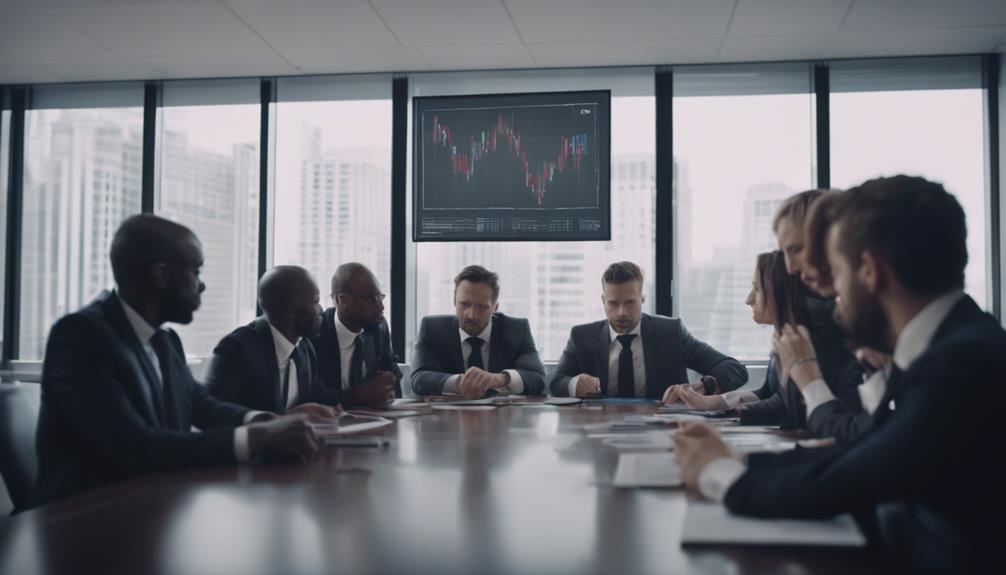In the realm of commerce, the notion of a cover-up raises questions about transparency, accountability, and the complexities that underlie such actions. A commercial cover-up involves a strategic and often calculated effort to obscure information that may be detrimental to a company's reputation, financial standing, or legal compliance.
Understanding the intricacies of what goes into orchestrating such a concealment requires a closer examination of the motives that drive these decisions, the methods employed to suppress incriminating facts, and the broader implications for stakeholders involved.
Let's delve into the layers of secrecy and manipulation that characterize these maneuvers within the corporate landscape.
Understanding the Motives Behind Cover-Ups

In the realm of corporate conduct and governance, an exploration of the motives driving cover-ups reveals the complex interplay of power dynamics, financial interests, and reputation management strategies. Cover-ups often stem from hidden agendas and ulterior motives, where individuals or organizations seek to protect their interests by concealing damaging information. This manipulation of facts and deception can serve various purposes, such as avoiding legal consequences, maintaining market share, or safeguarding personal reputations.
At the heart of many cover-ups lies a desire to manipulate the narrative surrounding a particular event or issue. By withholding crucial information or distorting the truth, entities engage in a form of strategic deception aimed at shaping perceptions and outcomes in their favor. Such actions are driven by a mix of self-preservation instincts, greed, or a quest for power within the competitive landscape of modern business.
Understanding these underlying motivations is crucial for regulators, stakeholders, and the public to uncover and address instances of corporate misconduct effectively. By shining a light on the forces driving cover-ups, a more transparent and accountable corporate environment can be fostered.
Types of Information Concealed
Various corporate cover-ups involve concealing sensitive financial data, unethical practices, and potential regulatory violations. These cover-ups often aim to hide hidden agendas and deceptive practices that could harm a company's reputation or lead to legal consequences.
One common type of information concealed in commercial cover-ups is sensitive financial data, such as fraudulent accounting practices or misleading financial statements. By hiding this information, companies try to maintain a facade of financial stability and attractiveness to investors.
Additionally, unethical practices like discrimination, harassment, or environmental violations are often kept under wraps to avoid public backlash and legal action. Companies may conceal such behaviors to protect their brand image and avoid losing customers or facing lawsuits.
Moreover, potential regulatory violations, such as breaches of industry laws or regulations, are frequently hidden to evade fines or sanctions that could damage the company's operations. Overall, commercial cover-ups involve concealing a range of information to protect the company's interests and avoid accountability for wrongful actions.
Common Tactics Employed

To maintain secrecy and protect their interests, corporations often employ a range of strategic tactics in commercial cover-ups. Media manipulation is a commonly used tactic, where companies control the narrative by influencing news outlets or social media to shape public perception. Deception tactics such as spreading misinformation or withholding crucial information also play a significant role in concealing unfavorable facts.
Public distrust is a key consideration for companies engaging in cover-ups, as maintaining a positive image is crucial for their reputation and bottom line. Damage control is another tactic employed to mitigate the fallout from uncovered scandals or unethical practices. This may involve issuing carefully crafted statements, conducting internal investigations to show a semblance of accountability, or even scapegoating individuals to shift blame away from the organization as a whole.
Legal and Ethical Implications
Corporations engaging in commercial cover-ups must navigate a complex landscape of legal and ethical implications that can have far-reaching consequences for both their operations and public perception. When a company chooses to conceal information or engage in deceptive practices, it undermines its corporate responsibility, leading to potential legal repercussions and reputational damage. In the realm of corporate responsibility, transparency is key. Concealing vital information not only violates ethical standards but also erodes trust with stakeholders.
Moreover, the issue of whistleblower protection adds another layer of complexity to commercial cover-ups. Whistleblowers play a crucial role in uncovering misconduct within organizations, and failing to protect them can result in legal liabilities and public backlash. Encouraging a culture of transparency and accountability within the company can help mitigate these risks and promote ethical behavior.
Case Studies of Cover-Ups

Examining notable instances of commercial cover-ups sheds light on the intricate web of deceit that some companies weave to conceal unfavorable information from the public eye. Corporate scandals often involve attempts to manipulate media coverage and shape public perception. In many cases, companies facing damaging revelations resort to whistleblower retaliation to prevent the truth from emerging.
One such case is the Volkswagen emissions scandal, where the company deliberately manipulated emissions tests to make their vehicles appear more environmentally friendly than they actually were. When the scandal was uncovered, Volkswagen initially tried to cover it up but eventually faced severe backlash and financial repercussions.
Another example is the Wells Fargo fake accounts scandal, where employees created millions of unauthorized accounts to meet aggressive sales targets. Wells Fargo attempted to downplay the issue and dismissed whistleblowers who tried to expose the fraudulent practices. However, the scandal became public, leading to a tarnished reputation and significant legal consequences for the company.
These case studies underscore the importance of transparency and ethical conduct in business to avoid the pitfalls of engaging in cover-ups.
Frequently Asked Questions
How Often Are Commercial Cover-Ups Successful in Preventing the Public From Finding Out the Truth?
Commercial cover-ups can impact public perception by influencing the narrative presented to the public. The success of these cover-ups in preventing the truth from emerging varies, as media coverage and public scrutiny can unveil the truth and lead to consequences for those involved.
Are There Any Industries or Types of Companies That Are More Prone to Engaging in Cover-Ups Than Others?
Certain types of companies, like those in the pharmaceutical, energy, and financial sectors, may be more prone to engaging in cover-ups due to the high stakes involved. Pattern of behavior often includes concealment and misinformation.
How Do Employees Typically Feel About Participating in a Cover-Up Within Their Organization?
Employee morale can significantly suffer when faced with participating in a cover-up within their organization. Such actions can clash with workplace ethics, leading to feelings of guilt, stress, and disengagement among employees, impacting overall team dynamics and organizational culture.
What Are Some Potential Long-Term Consequences for Companies That Are Caught Engaging in a Cover-Up?
Potential repercussions for companies caught in a cover-up include reputational damage, loss of trust from stakeholders, legal consequences, financial penalties, and long-term ethical dilemmas. Such actions can tarnish a company's image and credibility irreparably.
How Do Consumers and the General Public Typically React When a Cover-Up Is Exposed?
When a cover-up is exposed, consumers and the general public often react with public backlash and corporate reputation damage. Trust erosion occurs, leading to widespread consumer outrage and potential long-term consequences for the company involved.
Conclusion
In conclusion, commercial cover-ups involve concealing information to protect a company's reputation, finances, or legal standing.
Understanding the motives behind such actions, the types of information that are typically hidden, the common tactics used, and the legal and ethical implications are all important aspects to consider when examining cases of cover-ups in the business world.









